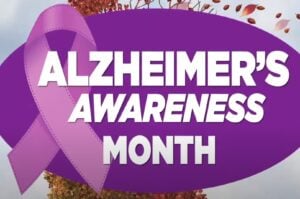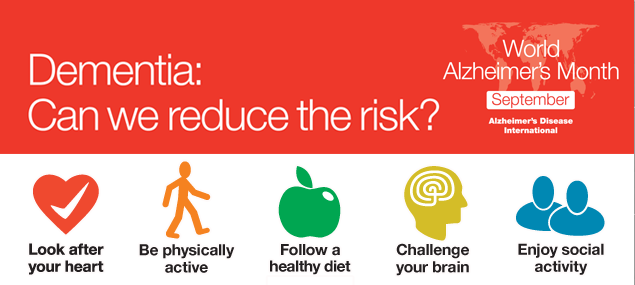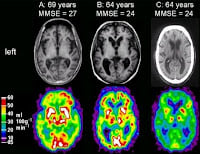If you live with Alzheimer’s, the need for more research funds may be obvious to you, but not so obvious to the government. The Alzheimer’s Accountability Act hopes to fix that. Learn how it will make the cost of Alzheimer’s crystal-clear to Congress.
People living with Alzheimer’s are applauding introduction of the Alzheimer’s Accountability Act (H.R. 4351/S. 2192). The Alzheimer’s Accountability Act represents a bipartisan effort to ensure that Congress is equipped with the best possible information to set funding priorities and reach the goal of the National Plan to Address Alzheimer’s Disease to prevent and effectively treat Alzheimer’s by 2025.
The Alzheimer’s Association was a major force behind the legislation, working with Reps. Brett Guthrie (R-Ky.) and Paul Tonko (D-N.Y.) and Sens. Edward Markey (D-Mass.) and Mike Crapo (R-Idaho) to introduce this important legislation.
The Alzheimer’s Accountability Act authorizes the National Institutes of Health (NIH) to submit a Professional Judgment Budget to Congress justifying funding for critical Alzheimer’s research. This Professional Judgment Budget will be formulated by the experts at the NIH to reflect the resources needed to accomplish the goals of the National Alzheimer’s Plan in each fiscal year leading up to 2025. It will reflect the state of Alzheimer’s research and call out the most promising opportunities according to leading scientists.
“The Alzheimer’s Accountability Act will serve as a tool to better inform Congress of the realities faced by the scientific community,” said Harry Johns, president and CEO of the Alzheimer’s Association. “We’ve seen other diseases benefit from this type of direct access between scientists and Congress. We must follow this strategic path if we hope to achieve the goals of the National Alzheimer’s Plan.”
In 2010, Congress unanimously passed the bipartisan National Alzheimer’s Project Act (P.L. 111-375), which instructed the Department of Health and Human Services (HHS) to develop a strategic plan to address the rapidly escalating Alzheimer’s disease crisis. The annually updated National Alzheimer’s Plan must be submitted to Congress each year to include outcome-driven objectives, recommendations for priority actions and coordination of all federally funded programs in Alzheimer’s disease research, care and services.
There are currently more than 5 million Americans living with Alzheimer’s disease and that number is poised to grow to as many as 16 million by 2050, according to the Alzheimer’s Association 2014 Alzheimer’s Disease Facts and Figuresreport. In addition to the human toll of the disease, care for Alzheimer’s, the country’s most expensive condition, will cost the nation $214 billion in 2014 with projections to reach $1.2 trillion by 2050. Nearly one in five dollars spent by Medicare is on someone with Alzheimer’s or another dementia.
The Alzheimer’s Association is grateful to Reps. Guthrie and Tonko and Sens. Markey and Crapo for their leadership. The bipartisan work of our elected officials is a vital part of making Alzheimer’s disease a national priority.
For more information on Alzheimer’s disease, visit the Alzheimer’s Association at alz.org.
Alzheimer’s Association
The Alzheimer’s Association is the world’s leading voluntary health organization in Alzheimer care, support and research. Our mission is to eliminate Alzheimer’s disease through the advancement of research; to provide and enhance care and support for all affected; and to reduce the risk of dementia through the promotion of brain health. Our vision is a world without Alzheimer’s. For more information, visit www.alz.org.












The reason must the item end up being any kind of different in the contest trail wherever rapid decisions within the warm regarding struggle include severe fiscal penalties? free money